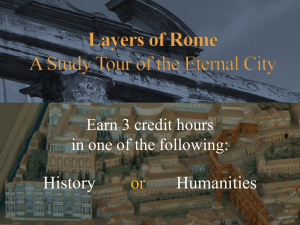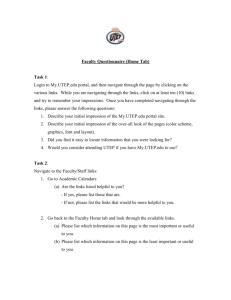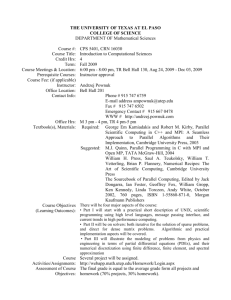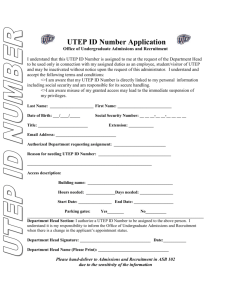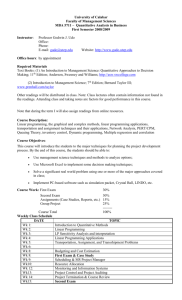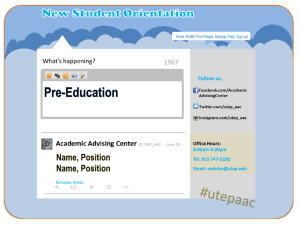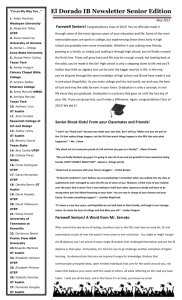Is Accounting Right For me?
advertisement
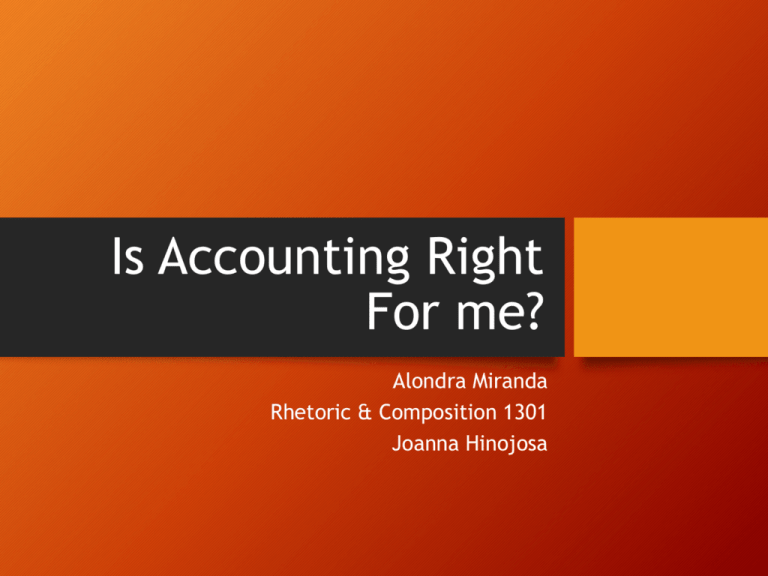
Is Accounting Right For me? Alondra Miranda Rhetoric & Composition 1301 Joanna Hinojosa Introduction • • • • Part Of the Business Administration College Building behind the UTEP Library 10 Faculty members Hardest major in the college of business Background • My understanding of accounting: Math & numbers • What accountants do: “financial records of business transactions and how to prepare statements concerning assets, liabilities, and operating results” (The Princeton Review, 2014). • “a rapidly growing profession” (The Princeton review, 2014). Data Methods: • • • • Interview: Accounting Workshop At UTEP Former Business Student at UTEP Documents: Degree Plan Site of Observation: Classroom of Workshop & Business Lobby What does the discipline of accounting value? • Clubs/ Organizations: the Accounting Society, Association of Latino Professionals in Finance and Accounting (ALPFA) and Beta Alpha Psi. • Scholarships (Example: Scholarship for CPA Certification) What is the Assumed Knowledge? • Intro to Business • Math 1320 & 2301 • Business Communication What is the knowledge/power? • How can students obtain power? Leadership positions, internships • Do you have the knowledge to be a CPA? CPA makes an accountant the perfect accountant for a job Conclusion • Purpose of this paper: to decide if students want to continue with the major • Yes I want to study Accounting! • High School Students benefit • I learned a lot of things about accounting • Primary Research Question: I feel more prepared and confident Works Cited • Accounting Society. (2014, October 20). Accounting workshop. Location: College of Business. • Accounting Department. (2014). Accounting and information systems website. Retrieved from http://business.utep.edu/AIS • The Princeton Review. (2014). The Princeton Review website. Retrieved from http://www.princetonreview.com/Majors.aspx?cip=5203 01&page=1 • Mathew, R. (2013). UTEP by the numbers. Retrieved from http://research.utep.edu/Portals/99/proposaldev/orsp%20workshops/Spring2013/UTEP%20by%20the%2 0Numbers%20-%204%2010%2013.pdf Fair Use Statement • “Section 107 [of Title 17, U.S.C.] contains a list of the various purposes for which the reproduction of a particular work may be considered fair, such as criticism, comment, news reporting, teaching, scholarship, and research. Section 107 also sets out four factors to be considered in determining whether or not a particular use is fair: 1. The purpose and character of the use, including whether such use is of commercial nature or is for nonprofit educational purposes 2. The nature of the copyrighted work 3. The amount and substantiality of the portion used in relation to the copyrighted work as a whole 4. The effect of the use upon the potential market for, or value of, the copyrighted work The distinction between fair use and infringement may be unclear and not easily defined. There is no specific number of words, lines, or notes that may safely be taken without permission. Acknowledging the source of the copyrighted material does not substitute for obtaining permission.” Thank You!
